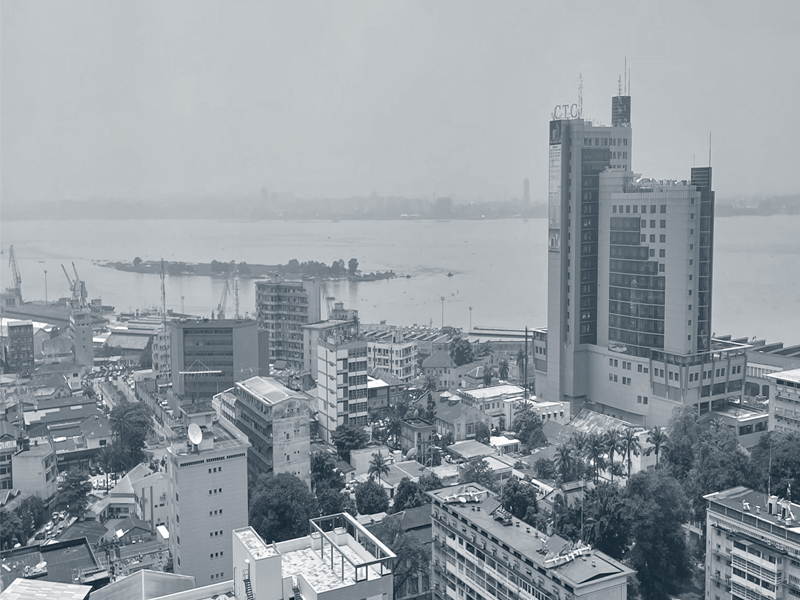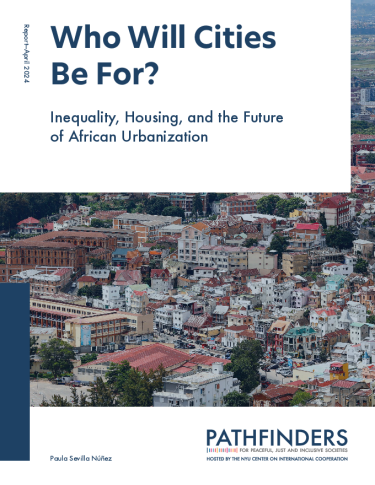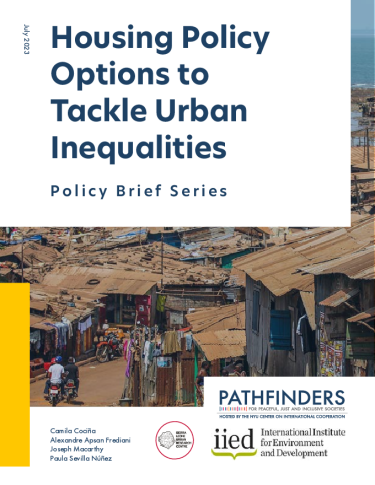The cities of the DRC, in particular the capital, Kinshasa, are experiencing a pattern of “urbanization without growth” characteristic of many urbanizing societies today. Insecurity in rural areas, fueled by violence, conflict, climate-induced disasters and insufficient services, is driving people into cities, rather than the existence of economic opportunities.
The rapid population growth in urban areas is overwhelming already strained infrastructure, leaving many without access to essential services. The low incomes of the majority and lack of affordable housing options leaves the majority of the population excluded from formal systems of housing and services provision. It is estimated that 75 percent of the urban population across the DRC live in informal settlements, which is 15 percentage points higher than the average in sub-Saharan Africa.
Paying attention to the dynamics in Kinshasa is particularly important not only because of its sheer size and growth rate, but because of the interplay of economic inequalities, state capture, and asymmetrical power dynamics on housing and urbanization that reflects not just local but also national and international trends around inequality, financialization of the built environment, and the fight for the right to housing. While these dynamics are occurring around the world, much of the literature continue to focus on the Global North or, if in the Global Majority, mostly in Anglophone contexts.
This report unpacks:
- Brief history of Kinshasa’s urban development: Kinshasa’s history and the legacy of colonial and segregationist laws continues to shape urban inequalities today, impacting people’s everyday lives.
- Housing inequality contextualized in Kinshasa: Economic inequalities lie at the heart of the housing crisis, revealing the incentives that shape urban policies, underscoring that housing cannot be divorced from its historical context, nor from the interlinkages between global resource extraction, governance, and local inequalities.
- Housing justice: Housing is above all a fundamental human right—not an aspiration, privilege, or tool for wealth accumulation.
Finally, this paper contends that the future of urbanization and housing lies in understanding housing as a governance and justice issue. Developing more inclusive forms of housing provision that recognizes and strengthens grassroots actions and conducting reforms with the right to housing—rather than its profitability—as the foundation is essential to redirecting cities to be equitable and inclusive spaces for all.
For further reading:


